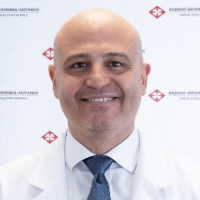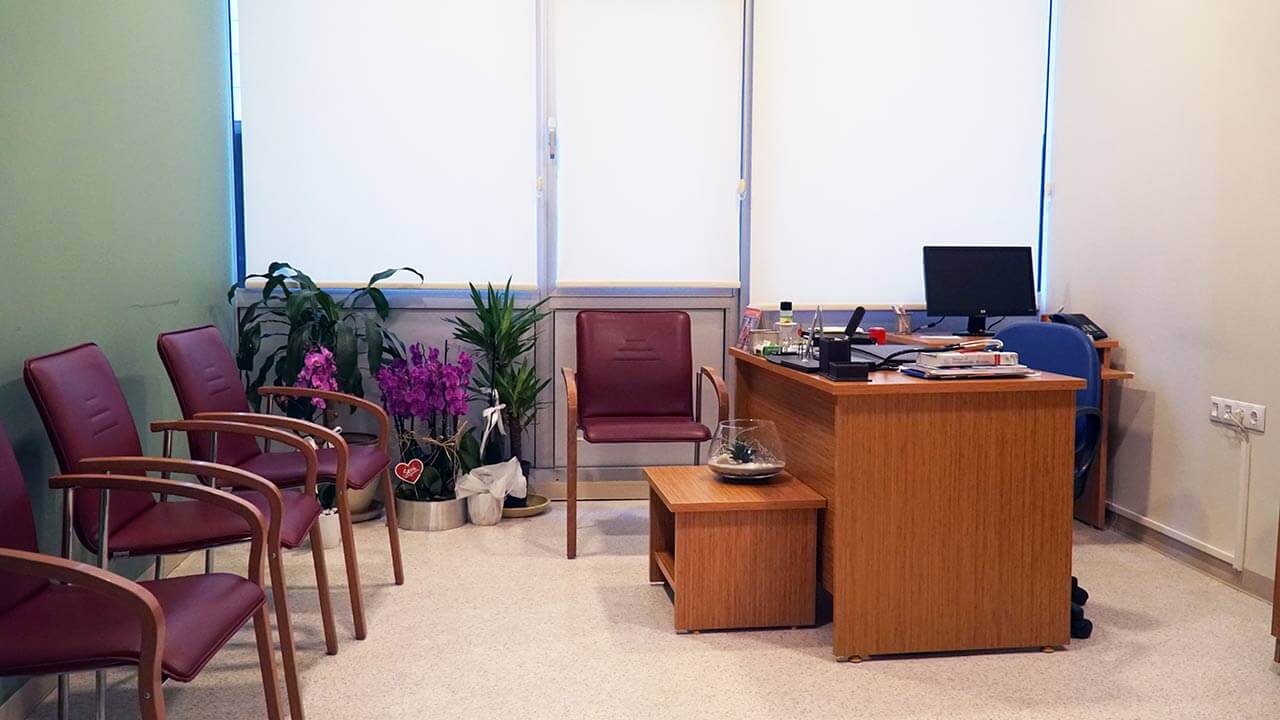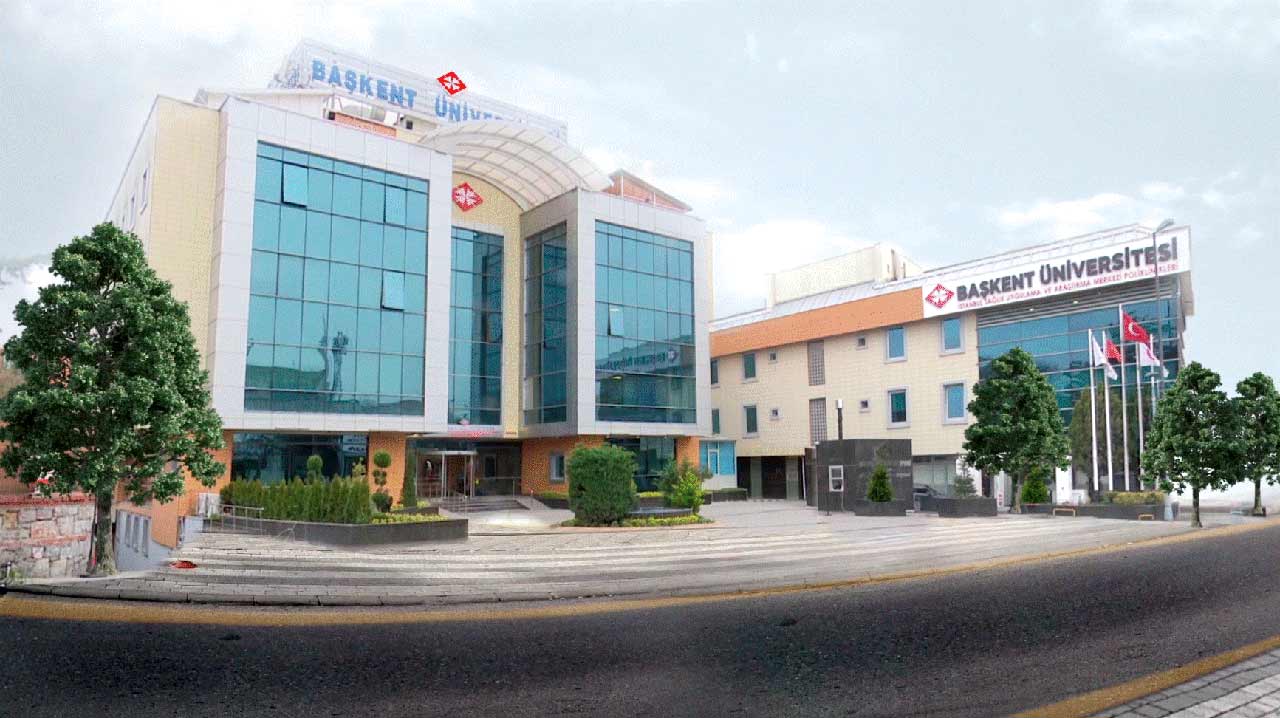
About the Department of Diagnostic and Interventional Cardiology at Baskent University Hospital Istanbul
The Department of Diagnostic and Interventional Cardiology at the Baskent University Hospital Istanbul provides the full range of diagnostic and therapeutic services at the highest level of university medicine. The department's specialists conduct all modern laboratory, electrophysiological and imaging tests, cardiac catheterization for diagnostic and therapeutic purposes, as well as many progressive interventional procedures, which help patients avoid major cardiac intervention. Medical care can be provided to patients both on an inpatient and outpatient basis. More than 1,300 patients undergo outpatient diagnostics and treatment in the department every month. The cardiologists use in their clinical practice only the most effective and reliable drugs, balloon catheters, stents and other specialized devices from the world's leading manufacturers, which contribute to the high quality of treatment. In addition, the specialists of the medical facility have a wealth of clinical experience, which allows them to easily cope with even especially complex clinical cases. The department's doctors cooperate closely with cardiac surgeons, which guarantees immediate surgical treatment where required. The Chief Physician of the department is Prof. Dr. med. Hakan Altay.
An integral part of work of the department's cardiologists are various cardiac catheterization procedures for diagnostic and therapeutic purposes. All examinations and therapeutic procedures are carried out by specially trained doctors with the use of advanced equipment, which provides the patient with maximum comfort and eliminates pain. One of the main methods of diagnostic cardiac catheterization is coronary angiography. The procedure is a contrast-enhanced radiography with the help of which the doctors have the opportunity to obtain the images of vessels of the heart and determine the areas of their narrowing or obstruction. Should pathological changes be detected in the circulatory system, the doctor can immediately perform the necessary therapeutic procedures, for example, stent implantation for the dilation of the narrowed section of the vessel. However, this is not always possible. The patient often requires a separate interventional procedure or surgery. In the course of coronary angiography, the patient is lying on the X-ray table. The doctor intravenously injects him sedative, so he can relax, but stay conscious during the entire procedure. The doctors attach electrodes to the patient's chest in order to monitor the heart. The patient wears a special cuff on his arm to monitor blood pressure and a pulse oximeter, which measures blood oxygen levels. As a rule, a catheter is inserted in the groin or arm using a local anesthetic to relieve pain. The contrast agent is injected through a catheter into the bloodstream. It can be clearly seen on the X-rays, so the doctor can easily detect the areas of obstruction and narrowing of the arteries. The results of coronary angiography determine the further treatment strategy. The department also often uses intravascular ultrasound of the heart to assess the lumen of blood vessels.
The department's medical team has all the necessary resources and professional skills to perform the interventional treatment of cardiac pathologies. The department is most often visited by patients with vascular atherosclerosis, which is the primary cause of the development of coronary heart disease and myocardial infarction. To eliminate stenoses and obstructions of the coronary arteries, the department's interventional cardiologists resort to stent implantation and balloon angioplasty. In the case of stent implantation, the doctors place a stent in the affected artery. The stent is a special ultrathin metal tube consisting of wire cells and acting on the principle of a spring. The stent is delivered to the narrowing using a catheter. When the stent reaches the area of narrowing or obstruction, it expands, thereby increasing the lumen of the artery. Then doctors fix it reliably in the problem area, which normalizes blood flow in the coronary artery. The department also uses in its clinical practice innovative bioabsorbable stents. They are made of a special polymer, which has the property of self-disintegration. Balloon angioplasty is also performed using a special catheter, which is used for delivering a miniature balloon to the area of narrowing or obstruction of the coronary artery under X-ray guidance. Then, saline is injected into the balloon under the pressure, due to which the balloon is inflated. At the final stage of the procedure, the cardiologist removes the saline solution from the balloon, and then removes the balloon. Stent implantation is quite often used in combination with balloon angioplasty.
The department also specializes in many modern interventional procedures for the treatment of aortic valve stenosis, heart valve replacement (for example, transcatheter aortic valve implantation), closure of atrial and interventricular septal defects, closure of patent foramen ovale, endovascular procedures for the treatment of abdominal and thoracic aortic aneurysms. All the therapeutic measures are performed in accordance with the current clinical protocols and recommendations of professional cardiac societies. The department's specialists regularly undergo advanced training courses, take part in the international congresses and conferences, where they exchange experience with colleagues and find out about innovations in cardiology. Thus, the patients of the department can count on the highest quality of medical care and a professional approach to the treatment of cardiac pathologies.
The department's range of medical services includes:
- Diagnostics
- Echocardiography
- Transthoracic echocardiography
- Transesophageal echocardiography
- Stress echocardiography
- 24-hour Holter ECG monitoring
- 24-hour blood pressure monitoring
- Treadmill exercise stress test
- Cardiac catheterization
- Coronary angiography
- Intravascular ultrasound
- Fractional flow reserve
- Electrophysiological studies of the heart
- Single photon-emission computed tomography (SPECT) in collaboration with the Department of Nuclear Medicine
- Multiple-gated acquisition myocardial scanning in collaboration with the Department of Nuclear Medicine
- Echocardiography
- Therapy
- Drug therapy
- Transcatheter aortic valve implantation (TAVI)
- Non-surgical heart valve replacement with groin access
- Endovascular aneurysm repair
- Endovascular abdominal aortic aneurysm repair
- Thoracic endovascular aortic repair
- Stent implantation for the treatment of abdominal and thoracic aortic aneurysms
- Closure of atrial septal defect
- Closure of ventricular septal defect
- Closure of patent foramen ovale
- Closure of patent ductus arteriosus
- Non-surgical closure of congenital heart defects with groin access
- Endovascular treatment of mitral, pulmonary and tricuspid valve stenosis
- Balloon dilation for the treatment of heart valve stenosis
- Mitral valve reconstruction using the innovative Carillon® system
- Non-surgical mitral valve reconstruction with groin access
- Alcohol septal ablation of the interventricular septum
- Other diagnostic and therapeutic options
Curriculum vitae
Higher Education and Postgraduate Training
- 1993 - 2000 Study of Human Medicine, Faculty of Medicine, Hacettepe University.
- 2013 Assistant Professorship, Yuksek Ihtisas University in Ankara.
Professional Career
- 2001 - 2006 Resident, Education and Research Hospital at the Yukses Ihtisas University in Ankara.
- 2007 - 2012 Fellow, Coronary Angiography Laboratory at the Başkent University Hospital Adana.
- 2012 - 2019 Assistant Professor, Coronary Angiography Laboratory at the Baskent University Hospital Istanbul.
- Since 2019 Head of the Department of Diagnostic and Interventional Cardiology at the Baskent University Hospital Istanbul.
Memberships in Professional Societies
- Board Member of the Heart Failure Association of the Turkish Society of Cardiology.
- Heart Failure Association of the European Society of Cardiology.
Photo of the doctor: (c) Istanbul Başkent Hospital






